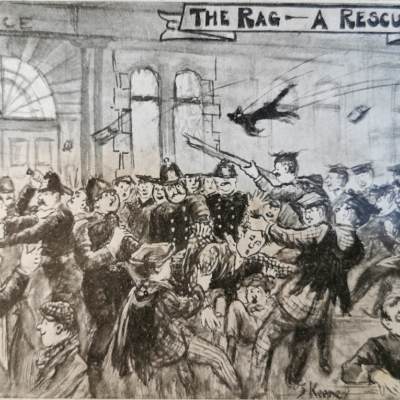Search by topic
- archaeology
- Building of Local Interest
- charity
- church
- crime
- dressmaker
- fire
- Great Eastern Railway
- Listed building
- Mapping Relief
- medieval
- oral history
- poverty
- Public House
- Rattee & Kett
- Religious House
- Roman
- scholar
- school
- Then and Now
- tudor
- women
- work
- world war one
- world war two
Search by text
Typhoid, Cholera & Plague in Cambridgeshire
History of Typhoid and Cholera in Cambridgeshire
1349 Plague in Cambridge – Black Death
1389 Plague
1513 Plague in Cambridge: Erasmus leaves Cambridge to escape
1577-1578 Plague in Cambridge
1584 Plague in Wisbech
1587 Plague in Wisbech
1665-66 Plague in Cambridge: killed 920
1815 Cholera in Cambridge
1832 Cholera in Ely
23/3/1832 Cambridge Chronicle
In 1832, 32 inhabitant of Nordelph died of cholera. Reepham medicine was claimed to work. At time of report 19 deaths.
20/4/1832 Cambridge Chronicle
Cholera at Ely: 49 dead.
Cholera in Wisbech: 20-30 died.
1848 Cholera in Nordelph, Wisbech and Cambridge
16/12/1848 Cambridge Independent Press
1848 Cholera in Cambridge
20/12/1848 Cambridge General Advertiser
Wayment, 70 year old man Shelly Row
Hillsden, 21 year old woman, Quayside, spasmodic cholera
1849 Cholera in Wisbech
20/1/1849 Cambridge Independent Press
Cholera at Nordelph (Northdelp) in Upwell
24/11/1849 Cambridge Independent Press
In 3rd Quarter of 1849 there were 80 cholera deaths in Wisbech
40 cholera deaths in North Witchford
1852 Typhoid in Cottenham
30/10/1852 Cambridge Independent
See ‘Olwyn Peacock, Cottenham’s Troubled Waters 1978’.
So many people died that autumn that a special day was set aside for prayers in the Church and Chapels. The outbreaks were without doubt caused by the liquid from household and animal cesspools seeping into the water supplies in the village.
1854 Cholera in Wisbech
Death rate of 49 per 1,000 highest in the country
15/9/1854 Lincolnshire Chronicle
1857 Typhoid in Cottenham
1865 Cholera in Wisbech
Woman died at Parson Drove
1866 Cholera in Linton
8/9/1866 Cambridge Chronicle
4 deaths in Linton
1873 Cholera in Cambridge – Caius College
1874 Typhoid in Cambridge
24/1/1874 The Ipswich Journal
7/2/1874 Norfolk News
10/2/1874 Bury and Norwich Post
George Fowler, 46, died of typhoid, manager of Rivingtons
1878 Typhoid in Cambridge
23/9/1878 Bradford Daily Telegraph
Typhoid in Cambridge
1885 Typhoid in Cottenham
By March there were 65 cases with 6 deaths. With two exceptions, all cases were at Church End and could be connected with the infected area. Seven cases which occurred before 17th January broke out in the houses at the extremities of Whitehead’s or Smith’s Path. The Chesterton Medical Officer Dr. Anningson that the water distribution in the village could explain the outbreak. Part of the village was on greensand, part on gault clay. The part of the village on gault was supplied by water in pipes from the greensand area. Wells had been dug in the gault area which served as underground reservoirs. It was into these reservoirs that sewerage matter had percolated and the pipes would transfer typhoid bacteria from one well to another. Twenty seven wells in the village were tested; eighteen were unfit for drinking. Of twelve wells at Church End, nine were bad.
It was however still not generally accepted that the disease was caught via water; there was a an old tradition of placing lighted pipes of tobacco on the coffins of typhoid victims to ‘purify’ the air.
It would take 20 years for the households at Church End to get a reliable supply of clean running water. Until then, water was delivered from cart into pails. Peacock’s monograph has details of the reports and discussion that took place.
1887 Typhoid at Fulbourn
30/9/1887 Cambridge Chronicle
‘Perfectly filthy’well
1887 Typhoid at Grantchester
30/9/1887 Cambridge Chronicle
1888 Typhoid in Fen Ditton
25/5/1888 Cambridge Chronicle
30 cases in Fen Ditton
1888 Inquiry at Cottenham
16/3/1888 Cambridge Independent Press
1889 Typhoid in Ely
10/7/1889 Cambridge Daily News
1889 Typhoid in St Ives
1/7/1889 Cambridge Daily News
Miss Burgess died
1889 Typhoid in Cambridge
30/8/1889 Cambridge Daily News
Newmarket Road – 40 infected
31/8/1889 Cambridge Daily News
George Sedgeley, 14, Riverside
5/9/1889 Cambridge Daily News
Cheddar’s Lane, Cambridge
1892 Cholera in March
5/10/1892 Suffolk and Essex Free Press
J Harlow, potato merchant in March
1893 Typhoid at Fen Ditton
11/8/1893 Cambridge Independent Press
1893 Typhoid at Cherry Hinton
11/8/1893 Cambridge Independent Press
1893 Typhoid in Sawston
29/9/1893
Death of Mrs Townsend
1899 Typhoid in Sawston
8/9/1899 Cambridge Independent Press
1899 Typhoid in Cambridge
27/10/1899 Dublin Daily Nation
Annie Perrin dies of Typhoid
1901 Typhoid in Cambridge
29/3/1901 Cambridge Independent Press
Four cases in East Road
1902 Typhoid in Cottenham
27/6/1902 Cambridge Independent Press
7 cases at Green End, Cottenham
4/7/1902 Cambridge Independent Press
Typhoid and bad water at Cottenham
18/8/1902 Cambridge Independent Press
1902 Typhoid in Gamlingay and Orwell
11/7/1902 Cambridge Independent News
1903 Typhoid in Cherry Hinton
12/9/1903 London Daily News
Sewerage Dispute at Cambridge
1905 Typhoid in Fulbourn
19/5/1905 Herts and Cambs Reporter & Royston Crow
60 cases of typhoid, some fatal at Fulbourn Lunatic Asylum
1907 Typhoid in Fulbourn
4/10/1907 Lunatic Asylum reported free of Typhoid
1908 Typhoid in Fulbourn
1/5/1908 Cambridge Independent
18 cases (4 fatal) in County Asylum
1910 Cambridge Water Supply Bill
15/4/1910 Cambridge Independent Press
1916 Typhoid in Wisbech
3/12/1916 The People
Wisbech VAD hospital evacuated because of typhoid epidemic
Contribute
Do you have any information about the people or places in this article? If so, then please let us know using the Contact page or by emailing capturingcambridge@
License
This work is licensed under CC BY-NC-SA 4.0






